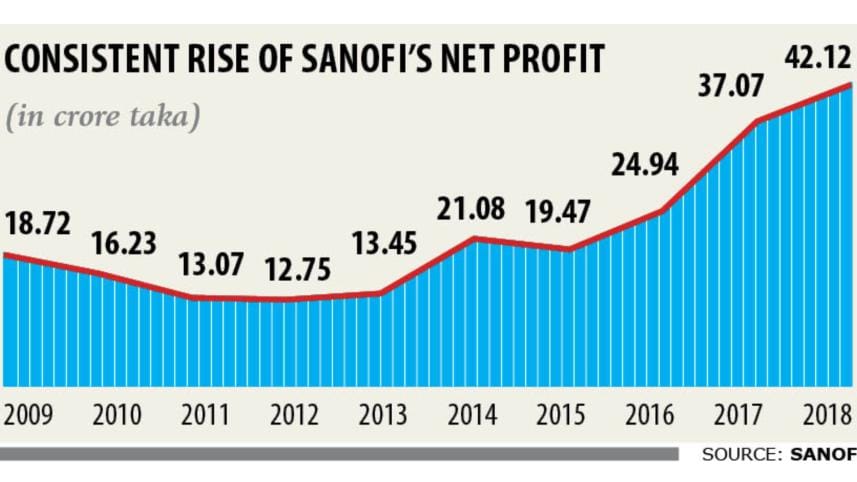Sanofi’s exit plan baffles employees

French pharma giant Sanofi’s intent to leave Bangladesh after 60 years despite being a profitable company has left its 1,000 employees worried about their future.
“We are passing an uncertain time now. We are hearing different kinds of information every day. We do not know what will happen,” said an employee asking not to be named.
Although the company has been informing its employees that they will not lose their jobs, behind the scenes it has tasked senior officials to draw up a compensation plan.
Sanofi though has been profitable consistently for the last 10 years of its operation, so the company’s retreating from Bangladesh was rather shocking, said another employee.
It logged in profits of Tk 42.12 crore in 2018, up 13.62 percent year-on-year, company documents show.
The Sanofi official blamed the corrupt marketing system in the industry for the company’s exit.
For instance, the local pharma companies can give a lot of commission and gifts to doctors for prescribing their medicines to patients. But such marketing is not permitted by Sanofi’s global company policy.
“Sanofi could not do well both in innovation and marketing as it did not give any bribe to any quarter.”
But the company has been making profit because of some of its unique drugs, like vaccines for deadly diseases like meningitis and yellow fever, chemotherapeutic products, unique antibiotics, medicines for kidney disease and lifesaving drugs, he said. “Across countries where Sanofi operates, we regularly assess the best ways in which to serve our customers and are currently evaluating different scenarios in Bangladesh. The newspaper reports are inaccurate,” said Muin Uddin Mazumder, managing director of Sanofi Bangladesh.
Sanofi has been present in Bangladesh for over 60 years and is committed to ensuring that its patients have continued access to innovative, affordable and high-quality healthcare solutions.
“In fact, earlier this month, we launched Toujeo (Insulin Glargine 300U), our original research product for diabetes management,” Mazumder said.
In its world-class plant located in Tongi, Sanofi products are produced maintaining good manufacturing practice standards and storage procedure.
Sanofi has been in the country since 1958. The company has around 1,000 employees on their payroll and many local vendors are directly associated with the business.
Bangladesh government holds 45.36 percent stakes in the company and the chairperson of Bangladesh Chemical Industries Corporation is also the board chairman of Sanofi Bangladesh.




 For all latest news, follow The Daily Star's Google News channel.
For all latest news, follow The Daily Star's Google News channel.
Comments